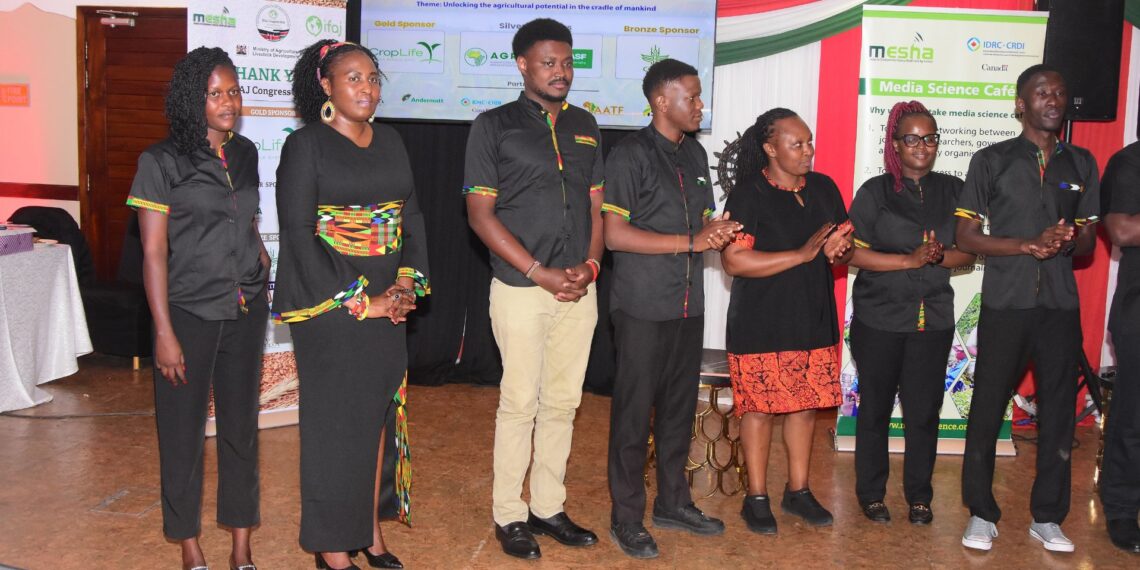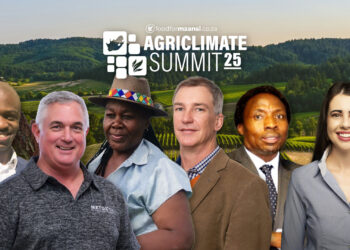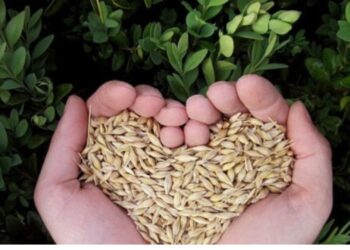At the International Forum of International Journalists (IFAJ) Congress in Nairobi, research by the Kenya Agricultural and Livestock Research Organisation (Kalro) shows that in crop production, women now outnumber men. This highlights how women are claiming their space in agriculture and reshaping the farming landscape.
The congress focused on meetings, breakaway sessions, and networking around agricultural reporting, exploring how to tell stories that make sense and truly reach the audience.
Aghan Daniel, the secretary of Media for Environment, Science, Health and Agriculture (Mesha) in Kenya, told Food For Mzansi that hosting the IFAJ World Congress meant much more than just welcoming delegates. He said it was a major milestone for Mesha to attract the IFAJ to Kenya.
“About five years ago, we were selected to host the 2026 congress,” he explained. “But when Israel, which was meant to host the 2025 event, stepped down, Mesha came on board.”
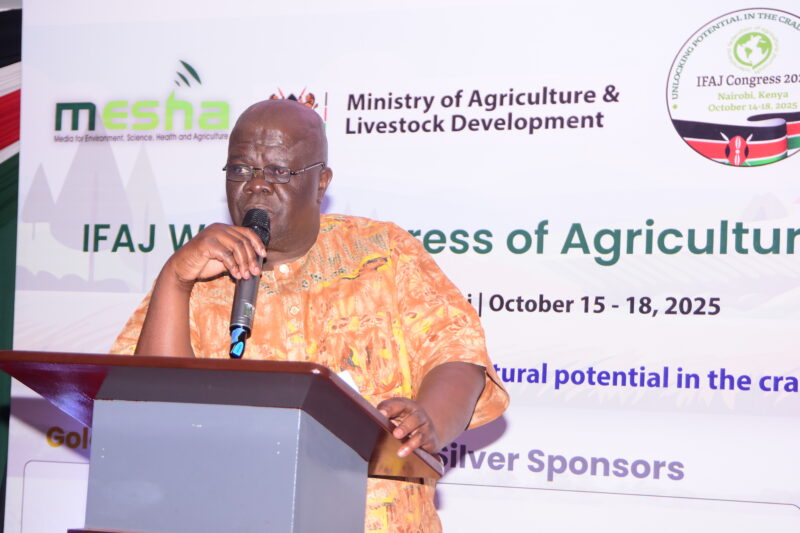
Daniel added that Mesha has built a culture of nurturing journalists through training in mobile and solutions journalism. “It is a triumph for me and for Mesha as an association, as this is the first time the congress has been held in East Africa,” he said.
Related stories
- Behind the agri headlines with IFAJ’S Steve Werblow
- Swiss farm brings sustainability and transparency to beef sales
- Atlas AgriSA Congress charts path to agri resilience
Women driving change in Kenyan agriculture
Traditionally, women were seen mainly as labourers on farms, but that picture is changing in Kenya. Many are now co-owning land, managing coffee cooperatives, leading agribusinesses, and adopting new technologies, said Gloria Gummerus, co-founder of Sakami Coffee in Kenya.
She said social change is clearly underway, with younger women entering agriculture as a career choice rather than a family duty.
“Their growing participation is transforming Kenya’s farming landscape into something more inclusive, professional, and innovative.”
Gloria Gummerus
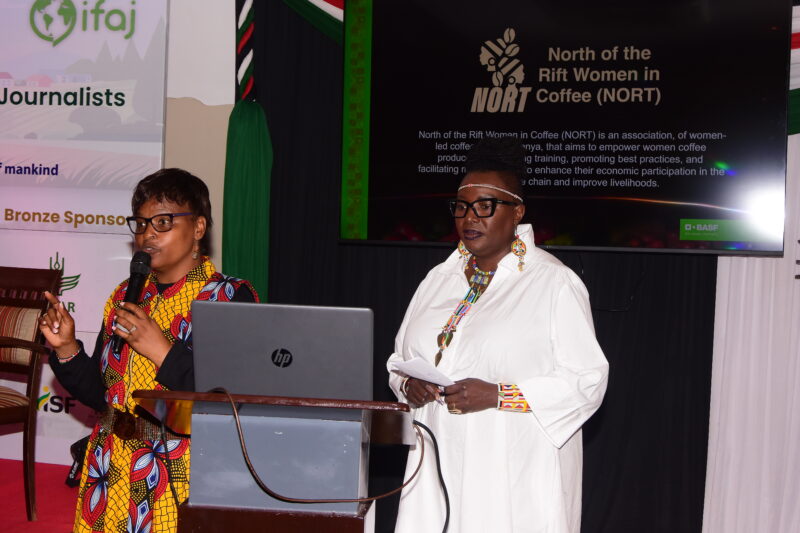
Gummerus added that there are strong women-led farmer groups such as North of the Rift Women in Coffee, along with several cooperatives focusing on improving coffee quality, sustainability, and access to finance.
“Training and mentorship programmes are empowering women with skills in agronomy, processing, Q-grading, barista work, and entrepreneurship,” she said.
Meanwhile, Jessica Ndubi, chief research scientist at the Kenya Agricultural and Livestock Research Organisation (Kalro) in Nairobi, noted that through participatory research and extension services, the organisation ensures women farmers are actively involved in innovation and decision-making.
Jessica Ndubi
“The organisation also supports market linkages, value addition, and agribusiness development, enabling women-led hubs to enhance productivity, profitability, and resilience in crop production systems.”
Ndubi added that Kalro’s research is deliberately gender-responsive, ensuring that technologies, innovations, and management practices address the diverse needs of both men and women across agricultural and livestock value chains.
“Gender analysis is done on the various value chains to identify barriers limiting women’s participation,” she said.
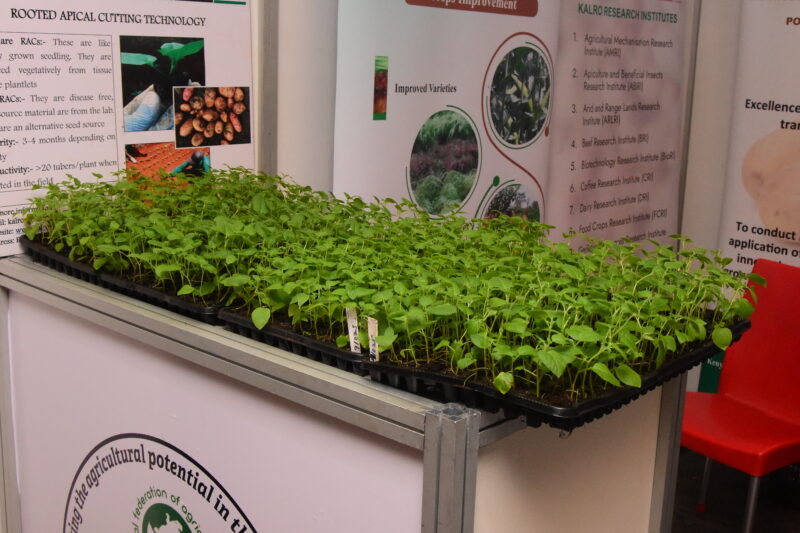
Ndubi said this gender-responsive approach strengthens access to information, resources, and markets, enabling women to adopt improved practices and benefit equitably from agricultural advancements; fostering sustainable livelihoods and inclusive growth within Kenya’s agri-food system.
Champions for gender equality in agriculture
Ndubi told Food For Mzansi that Kalru runs gender-responsive capacity building and extension programmes designed to meet women’s unique needs in agriculture.
“Training modules are designed with flexible schedules, local languages, and practical demonstrations that accommodate women’s roles and time constraints. Women farmers receive hands-on skills in improved production techniques, agribusiness, and climate adaptation.”
Extension messages are adapted for women and delivered through accessible channels such as women’s groups, local radio programmes, and mobile SMS, increasing reach and improving agricultural productivity, added Ndubi.
She also noted that Kalro mainstreams women in leadership, policy influence, and partnerships by integrating a gender equality perspective into its policies, programmes, and activities.
“It empowers women scientists, managers, and researchers through mentorship, leadership training, and career development opportunities.”
Through partnerships with government, academia, the private sector, NGOs, and development agencies, the organisation advances gender-responsive policies and programmes that empower women and drive sustainable agricultural transformation, according to Ndubi.
ALSO READ: IFAJ congress brings the world’s top agri media to Nairobi



